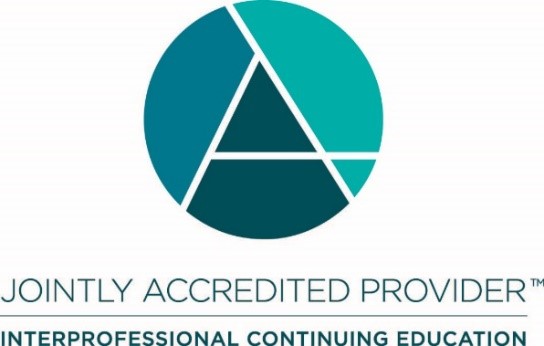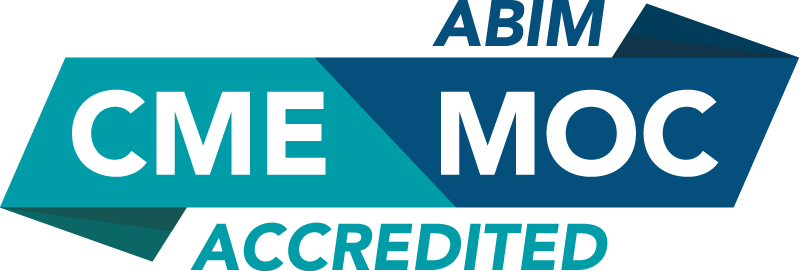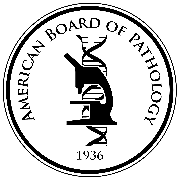NCCN 2021 Virtual Congress™: Breast Cancer with Updates from 2020 San Antonio Breast Cancer Symposium
Breast cancer continues to be the second most common cause of cancer death in women in the United States. Results from numerous clinical trials continue to expand diagnostic/prognostic tools, therapeutic options, and supportive care strategies. Healthcare professionals need to be educated on current and emerging scientific data to make evidence-based treatment decisions and to provide optimal care for patients with breast cancer.
The NCCN 2021 Virtual Congress™: Breast Cancer with Updates from the 2020 San Antonio Breast Cancer Symposium (SABCS) will provide expert insights on the current standard of care for patients with breast cancer and include the latest clinical research updates from the 2020 SABCS to assist clinicians in formulating breast cancer management strategies.
Please log in with the same email address used for program registration.
Target Audience
This educational program is designed to meet the educational needs of physicians, nurse practitioners, nurses, physician assistants, pharmacists, and other health care professionals who manage patients with breast cancer.
Learning Objectives
Following this program, participants should be able to:
Overall Congress Objectives
• Summarize the current standards of oncology care, key updates in the NCCN Clinical Practice Guidelines in Oncology (NCCN Guidelines®), and clinical research updates from the 2020 SABCS, and integrate appropriate strategies into clinical practice to optimize the management of patients with breast cancer and improve patient outcomes.
• Evaluate new, emerging and novel therapeutic agents, advances in care, and clinical trials data and apply relevant findings into the management of patients with breast cancer.
Understanding/Addressing Health Disparities to Improve Breast Cancer Care
• Review the diverse spectrum of socioeconomic issues contributing to disparities in access to and delivery of breast cancer care.
• Describe the effect of tumor biology and genetics on breast cancer risk and outcomes of treatment.
• Apply methods and strategies that provide equitable access to timely and high-quality breast cancer care to clinical practice.
Genetic Testing in Patients with Breast Cancer: Who Should Get Tested?
• Identify genes that are associated with an increased risk of hereditary breast cancer.
• Review current genetic testing criteria for patients with breast cancer.
• Recognize the challenges associated with genetic testing for patients with breast cancer.
Surgical and Radiation Treatment Updates to Management of Breast Cancer, Including SABCS Updates
• Develop an evidence-based approach for the surgical management of the axilla in patients with early stage breast cancer.
• Individualize radiation therapy recommendations based on patient and tumor characteristics.
• Discuss new and emerging data in the management of patients with early stage breast cancer and integrate key findings into clinical practice.
Adjuvant and Neoadjuvant Therapies for Breast Cancer, Including SABCS Updates
• Compare and contrast data on the clinical safety and efficacy of neoadjuvant regimens in early stage breast cancer.
• Recognize key patient and clinical factors that influence selection of systemic adjuvant therapy.
• Discuss clinical data of new and emerging supportive care interventions to enhance shared decision-making and improve quality of life of patients undergoing neoadjuvant/adjuvant chemotherapy.
Breast Cancer in Young Adults: Treatment Considerations and Supportive Care Options
• Review the breast cancer risk factors and tumor characteristics unique to the adolescent and young adult (AYA) population.
• Compare and contrast the various treatment modalities for the management of breast cancer in young adults.
• Recognize the supportive care issues unique to the AYA population and manage patients accordingly.
Updates to the Systemic Treatment of Metastatic Breast Cancer, Including SABCS Updates
• Select evidence-based first- and subsequent-line treatment options for patients with metastatic breast cancer based on hormone- and HER2-receptor status.
• Review the current therapeutic approaches for triple negative metastatic breast cancer.
• As appropriate, incorporate new and emerging therapeutic options into the management of patients with metastatic breast cancer.
Management of Breast Cancer Brain Metastases
• Recognize the frequency of brain metastases in patients with breast cancer and presenting signs and symptoms of metastases.
• Review the efficacy and potential effects on cognitive function and quality of life related to local treatment of brain metastases, such as stereotactic radiosurgery and whole brain radiation therapy.
• Identify systemic therapy options for patients with brain metastases from breast cancer.
Breast Cancer Survivors: Issues and Recommendations
• List some of the more common physical, psychological, and psychosocial late and long-term effects associated with breast cancer and its treatment.
• Counsel breast cancer survivors about healthy lifestyle changes that can decrease the risks for many late and long-term effects.
• Develop strategies for screening and management of common late and long-term effects in breast cancer survivors.
NCCN Medical Education Disclosure Policy
It is the policy of NCCN that every 12 months, all faculty, moderators, activity planners and all internal planning staff participating in NCCN continuing education activities are expected to disclose any financial relationships with a commercial interest as defined by the Accreditation Council for Continuing Medical Education (ACCME) Standards for Commercial Support. In addition, all faculty presentations have been reviewed for adherence to the ACCME’s Standards for Commercial Support (the provider develops activities/educational interventions independent of commercial interests [SCS 1, 2 and 6] by experts on the topics).
Per the ACCME Standards for Commercial Support, individuals who do not disclose relevant financial relationships will be disqualified from involvement in the CE activity as a content developer, planner, or presenter. A complete list of individuals’ relationships with external entities is available upon request.
Definitions
NCCN continuing education considers financial relationships to create a “conflict of interest” when an individual has both a financial relationship with a commercial interest and the opportunity to affect CE content about the products or services of a commercial interest with which he/she and/or a spouse or partner has a financial relationship.
NCCN continuing education considers “relevant financial relationships” as financial relationships in any amount occurring within the past 12 months that create a conflict of interest. NCCN does not set a minimal dollar amount for relationships to be significant. Inherent in any amount is the incentive to maintain or increase the value of the relationship.
Faculty Disclaimers
All faculty for this continuing education activity are competent in the subject matter and qualified by experience, training, and/or preparation for the tasks and methods of delivery.
Faculty presentations may include discussion of off-label use. Faculty will disclose that the use in question is not currently approved by the FDA per the product labeling.
Faculty Disclosures
The faculty listed below discloses no relevant financial relationships:
Doreen M. Agnese, MD
Meena S. Moran, MD
Ann H. Partridge, MD, MPH
Amye J. Tevaarwerk, MD
The faculty listed below discloses the following relevant financial relationships:
Otis Webb Brawley, MD
Genentech, Inc.: Scientific Advisor
PDX Biosciences: Board Member
William J. Gradishar, MD
AstraZeneca Pharmaceuticals LP: Scientific Advisor
MacroGenics, Inc.: Scientific Advisor
Pfizer Inc.: Scientific Advisor
Roche Laboratories, Inc./Genentech, Inc.: Scientific Advisor
Seattle Genetics, Inc.: Scientific Advisor
Ingrid A. Mayer, MD, MSCI
AbbVie Inc.: Consulting Fee
AstraZeneca Pharmaceuticals LP: Consulting Fee; Honoraria
Genentech, Inc.: Grant/Research Support; Consulting Fee; Honoraria
GlaxoSmithKline: Consulting Fee
Immunomedics, Inc.: Consulting Fee
Novartis Pharmaceuticals Corporation: Grant/Research Support; Consulting Fee; Honoraria Lilly: Consulting Fee
MacroGenics, Inc: Consulting Fee
Pfizer Inc.: Grant/Research Support
Puma Biotechnology: Consulting Fee
Seattle Genetics, Inc.: Consulting Fee
Louis B. Nabors, MD
BTG: Scientific Advisor
Karyopharm Therapeutics: Scientific Advisor
Erica M. Stringer-Reasor, MD
Curio Science: Product/Speakers Bureau
Immunomedics, Inc.: Scientific Advisor
Lilly: Scientific Advisor
Novartis Pharmaceuticals Corporation: Scientific Advisor
Susan G. Komen: Grant/Research Support
The V Foundation: Grant/Research Support
Nadine M. Tung, MD
AstraZeneca Pharmaceuticals LP: Grant/Research Support
Myriad Genetic Laboratories, Inc.: Grant/Research Support
NCCN Staff Disclosures
The NCCN Activity Planning staff listed below discloses no relevant financial relationships:
Mike Abrams; Melissa Esplen; Mark A. Geisler; Kristina M. Gregory, RN, MSN, OCN; Kristin Kline Hasson; Rose Joyce; Karen Kanefield; Lisa Perfidio, MS; Shannon Ryan, CMP; Kathy Ann Smith, CHCP; Sarah Weinstein
The NCCN Clinical staff listed below discloses no relevant financial relationships:
Mary Ann Bergman; Jennifer L. Burns, BS; Susan D. Darlow, PhD; Mary A. Dwyer, MS, CGC; Deborah A. Freedman-Cass, PhD; Giby V. George, MD; Rashmi Kumar, PhD; Nicole R. McMillian, MS, CHES; Dorothy A. Shead, MS

In support of improving patient care, National Comprehensive Cancer Network (NCCN) is jointly accredited by the Accreditation Council for Continuing Medical Education (ACCME), the Accreditation Council for Pharmacy Education (ACPE), and the American Nurses Credentialing Center (ANCC), to provide continuing education for the healthcare team.
Physicians
NCCN designates this live activity for a maximum of 6.25 AMA PRA Category 1 Credits™. Physicians should claim only the credit commensurate with the extent of their participation in the activity.
Nurses
NCCN designates this educational activity for a maximum of 6.25 contact hours.
Pharmacists
NCCN designates this knowledge-based continuing education activity for 6.25 contact hours (0.625 CEUs) of continuing education credit. UAN: JA4008196-0000-21-001-L01-P
Physician Assistants
NCCN has been authorized by the American Academy of PAs (AAPA) to award AAPA Category 1 CME credit for activities planned in accordance with AAPA CME Criteria. This activity is designated for 6.25 AAPA Category 1 CME credits. PAs should only claim credit commensurate with the extent of their participation.
American Board of Internal Medicine Maintenance of Certification (MOC)

Successful completion of this CME activity, which includes participation in the evaluation component, enables the participant to earn up to 6.25 medical knowledge MOC points in the American Board of Internal Medicine’s (ABIM) Maintenance of Certification (MOC) program. Participants will earn MOC points equivalent to the amount of CME credits claimed for the activity. It is the CME activity provider’s responsibility to submit participant completion information to ACCME for the purpose of granting ABIM MOC credit.
Aggregated participant data will be shared with the commercial supporters of this activity.
American Board of Pathology Continuing Certification (CC)

This activity has been registered to offer credit in the American Board of Pathology’s (ABPath) Continuing Certification program. Successful completion of this CME activity enables the participant to earn up to 6.25 Lifelong Learning (Part II) credits.
Aggregated participant data will be shared with the commercial supporters of this activity.
American Board of Medical Specialties (MOC)
Through the American Board of Medical Specialties (“ABMS”) MOC Initiative to create a wide array of Maintenance of Certification (“MOC”) Activities through the ABMS MOC Directory, the NCCN 2021 Congress Series: Breast Cancer has met the MOC requirements as a MOC Part II CME Activity (apply toward general CME requirement) by the following ABMS Member Boards:
MOC Part II CME Activity
Medical Genetics and Genomics
Pathology
Radiology
Available Credit
- 6.25 AAPA Category 1 CME credit
- 6.25 ABIM MOC
- 6.25 AMA PRA Category 1 Credit™
- 6.25 ANCC contact hours
- 6.25 Participation
Please log in with the same email address used for program registration.
Required Hardware/software
To complete this activity, users will need:
- A device with an Internet connection and sound playback capability
- One of the two latest versions of Google Chrome, Mozilla Firefox, or Safari
- Internet Explorer is no longer supported
- Adobe Reader or other PDF reader software for certificate viewing/printing

 Facebook
Facebook X
X LinkedIn
LinkedIn Forward
Forward